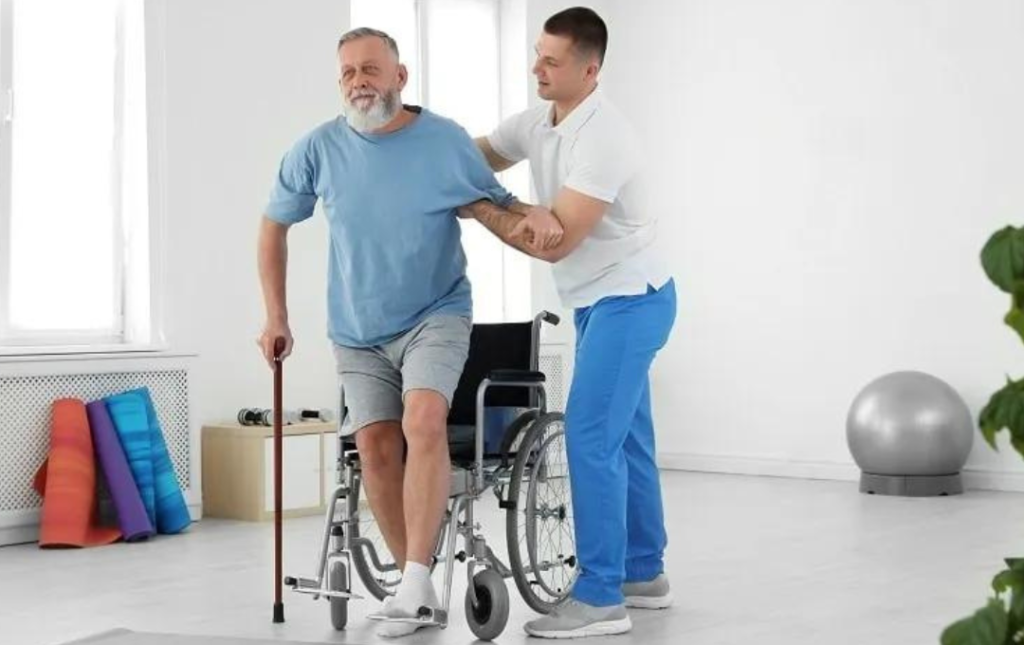Within our bodies, a complex interplay between the central nervous system, composed of the brain and spinal cord, and the peripheral nervous system, comprising sensory nerves, dictates both our physiological functions and emotional responses. This intricate communication network orchestrates the control of muscles and limbs, shaping our ability to move and coordinate physical actions.
Sadly, disruptions in this neural communication or any interference with the transmission of nerve impulses from the brain to muscles can have adverse effects on muscle control and limb function. This disruption, if not addressed, may progress and result in paralysis, where individuals lose the ability to move or coordinate their bodies effectively.
Paralysis can stem from various sources, such as damage to the nervous system or spinal cord injuries, and even strokes, which can lead to neurological malfunctions due to oxygen deprivation in the brain.
Regrettably, there is no certified cure for paralysis, but hope lies in effective stroke rehabilitation programs and innovative approaches. Among these approaches, rehab paralysis treatment at home shines as a beacon of promise. Physiotherapy for paralysis plays a crucial role in restoring limb function and muscle strength, helping patients regain mobility and independence.
Paralysis rehab Center in Bangalore comprising a team of experienced physiotherapists assesses each patient’s physiological and physical condition, tailoring personalized physical training to suit their unique situation. By engaging in carefully designed exercises, individuals with paralysis treatment can relearn various physical activities and strive to lead fulfilling lives with minimal or no dependence.
Furthermore, the field of robotics rehabilitation has witnessed rapid advancements, offering new avenues for treating paralysis. These cutting-edge technologies complement traditional physiotherapy, providing additional tools to aid patients in their journey toward recovery.
While there might not yet be a definitive cure, the combination of dedicated home-based paralysis treatment and emerging technologies brings newfound hope to those affected by paralysis. As we continue to advance in our understanding and treatment of this condition, the potential for enhancing the lives of paralysis patients grows ever brighter.
Role of Physiotherapy in Paralysis Treatment
Physiotherapy, also known as physical therapy, plays a vital and multifaceted role in the treatment of paralysis. The benefits of physiotherapy for individuals suffering from paralysis include:
Assessment and Individualized Treatment Plans: Upon diagnosis of paralysis, a crucial initial step is a comprehensive assessment conducted by skilled physiotherapists. These assessments aim to evaluate the extent of muscle weakness, range of motion limitations, sensory deficits, and any associated pain or discomfort. Based on these evaluations, physiotherapists develop personalized treatment plans tailored to the specific needs and limitations of each patient. These individualized programs are essential to address the diverse challenges presented by paralysis, as the condition’s manifestation can vary widely from one individual to another.
Restoring Mobility and Motor Function: Physiotherapy interventions for paralysis are designed to target the restoration of mobility and motor function in affected limbs and body parts. Through a combination of therapeutic exercises, stretching, and strengthening routines, physiotherapists work to stimulate and retrain the nervous system, encouraging neural plasticity. Neural plasticity refers to the brain’s ability to adapt and form new connections, allowing it to compensate for damaged neural pathways and potentially restore lost motor functions over time.
Improving Muscle Strength and Endurance: Muscle weakness is a common challenge faced by individuals with paralysis. Effective paralysis management techniques aim to counteract this weakness by implementing exercises that target specific muscle groups. These exercises help in rebuilding muscle strength, improving muscle tone, and preventing muscle atrophy. Gradually, as muscle strength increases, patients experience enhanced control over their movements, enabling them to engage in daily activities more effectively.

Enhancing Balance and Coordination: Loss of coordination is another significant issue faced by individuals with paralysis. Physiotherapists utilize a range of therapeutic techniques, such as balance training exercises, proprioceptive training, and gait training, to improve the patient’s ability to maintain balance and coordination during various movements. This improvement in balance and coordination not only reduces the risk of falls but also contributes to greater mobility and confidence in carrying out daily activities.
Pain Management and Comfort: Paralysis can often lead to pain and discomfort due to muscle imbalances, spasticity, or joint stiffness. Physiotherapists address these issues through various modalities, such as manual therapy, heat or cold therapy, and electrical stimulation, to alleviate pain and enhance the patient’s overall comfort. By reducing pain, individuals with paralysis can better engage in their therapy and experience an improved quality of life.
Adaptive Techniques and Equipment: Physiotherapists also play a crucial role in recommending and training individuals with paralysis on the use of adaptive techniques and assistive devices. These tools can range from specialized wheelchairs and orthotics to mobility aids that facilitate daily activities. By incorporating adaptive strategies into their routines, patients can overcome physical limitations and participate more actively in society, promoting independence and social inclusion.
Emotional Support and Motivation: Living with paralysis can be emotionally challenging, and physiotherapists often act as a source of emotional support and motivation for their patients. Building a strong rapport with patients, these healthcare professionals help them stay motivated throughout their rehabilitation journey. This emotional support not only aids in maintaining compliance with therapy but also contributes to the patient’s overall well-being and mental health.
Integration of Robotics and Technology: In recent years, advancements in robotics and technology have further expanded the role of physiotherapy in paralysis treatment. Robotic-assisted therapies offer targeted and intensive training, providing patients with additional opportunities for repetitive and task-specific exercises. These technological innovations supplement traditional physiotherapy approaches, offering a more holistic and comprehensive treatment experience for individuals with paralysis.
Conclusion
Physiotherapy holds a crucial and versatile role in the treatment and rehabilitation of paralysis. Through a combination of personalized assessments, therapeutic exercises, adaptive techniques, and emotional support, paralysis treatment in Bangalore empower individuals with paralysis to reclaim control over their lives. While a certified cure for paralysis may still be on the horizon, the impactful contributions of at-home remedies for paralysis are invaluable in improving functional outcomes, enhancing mobility, and fostering independence for those living with this condition. As the field of physiotherapy continues to evolve and integrate cutting-edge technologies, the potential for optimizing paralysis treatment and enriching the lives of affected individuals continues to expand.
We are India’s first comprehensive continuum care provider. We provide multidisciplinary out of hospital care to acute and post-acute and chronically ill patients at our critical care facilities and your home.


